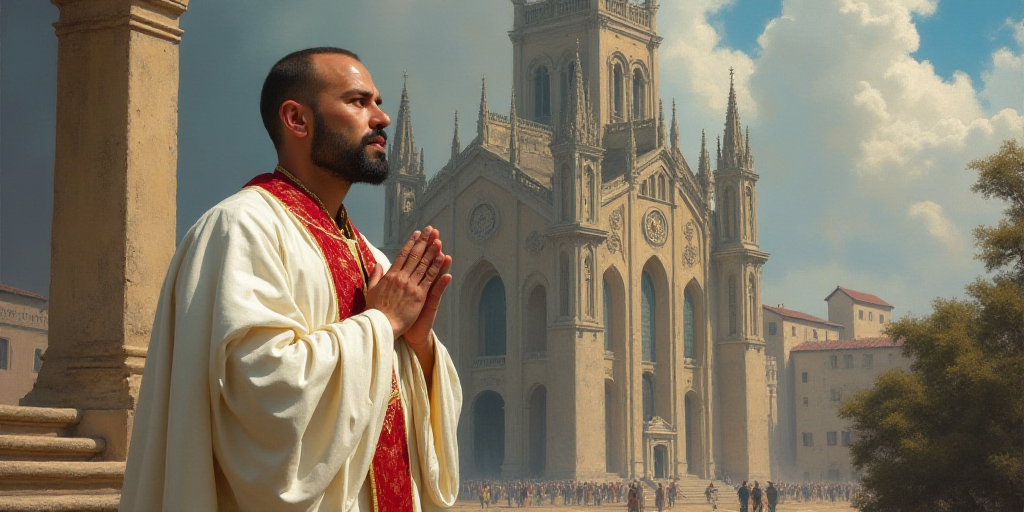Reforms
Pope Francis, who passed away on Monday at the age of 88, implemented significant reforms during his papacy. These included a radical overhaul of the Roman Curia, the central governance body of the Catholic Church, aiming to strengthen evangelization and local church listening processes. He sought to decentralize the influential Roman Curia, giving more space to laypeople and women.
These reforms, though criticized internally, materialized with the introduction in 2022 of a new Constitution. This document reorganized dicasterios (ministries) and prioritized evangelization. Francis also revamped the Vatican’s finance sector, creating a Secretariat for the Economy in 2014. He established a framework for investments and implemented anti-corruption measures, including the cleaning up of the Vatican Bank by closing 5,000 accounts.
However, these measures were undermined by the impact of the COVID-19 pandemic and the Becciu scandal, involving a prominent cardinal in an opaque real estate deal by the Holy See.
Combatting Child Sexual Abuse in the Church
The proliferation of sexual abuse scandals involving minors within the Church, from Ireland to Germany, passing through the United States and Chile, was one of the most challenging issues he had to confront.
Following the failures of an international commission of experts established in 2014 and the controversial trip to Chile in 2018 that led to a series of notable resignations and expulsions, Francis publicly apologized for incorrectly defending a bishop. He also multiplied his apologies to victims, even housing some in the Vatican.
In 2019, he expelled Cardinal Theodore McCarrick, found guilty of sexual abuse against minors. This significant act demonstrated his “zero tolerance” stance towards this crime.
The pontiff also established a commission for child protection, which eventually became part of the Curia. In 2019, a groundbreaking Vatican summit on child protection resulted in concrete measures, including the removal of papal secrecy regarding these crimes, obliging religious figures to report any case to their hierarchy, creating platforms for listening in diocesan worldwide…
Diplomacy and “Peripheries”
In over 40 foreign trips, Jorge Mario Bergoglio prioritized visiting the “peripheries” of the world, particularly marginalized Eastern European, Latin American, and African countries.
The Latin American pope was a staunch advocate for multilateralism and constantly denounced war and the arms trade. He promoted dialogue with all religions, maintaining a special relationship with Islam, cemented by his historic 2021 visit to Iraq.
During his papacy, he achieved an unprecedented agreement with China’s communist regime in 2018 on the contentious issue of episcopal appointments.
The Vatican’s diplomacy also facilitated the historic approach between Cuba and the United States in 2014 and supported Colombia’s peace process. It also engaged in several regional conflicts in Latin America and Africa, facilitating dialogue and brokering agreements in Venezuela, between Nicaragua and Costa Rica, and between Haiti and the Dominican Republic.
However, in the case of the Ukraine war, which began with Russia’s invasion in February 2022, he failed to make headway.
Migrations, Environment, and Social Justice
From the Italian island of Lampedusa, a hub for migrants trying to enter Europe, or the Greek camp of Lesbos in the Aegean Sea, the Argentine pontiff defended migrants and called for their acceptance without distinction as they flee war and poverty.
In his encyclical “Laudato Si” (2015), he demanded a “green revolution” and criticized the “irresponsible use of God-given resources” on Earth, reiterating his commitment to “integral ecology.”
In 2020, he penned an encyclical defending the Amazon region after consulting all religious and indigenous leaders in that vast territory, introducing what he termed “ecological sin.”
The COVID-19 pandemic amplified the resonance of his calls for greater social justice.
Key Questions and Answers
- What were Pope Francis’s major reforms? He aimed to decentralize the Roman Curia, prioritize evangelization, and revamp the Vatican’s finance sector. He introduced a new Constitution in 2022, established a Secretariat for the Economy, and implemented anti-corruption measures.
- How did Pope Francis address child sexual abuse in the Church? He publicly apologized for incorrectly defending a bishop, multiplied his apologies to victims, expelled Cardinal Theodore McCarrick for sexual abuse, and established a commission for child protection.
- What was Pope Francis’s approach to diplomacy? He prioritized visiting marginalized regions, advocated for multilateralism, and engaged in several regional conflicts. He achieved an agreement with China on episcopal appointments and facilitated the approach between Cuba and the United States.
- How did Pope Francis handle migration issues? He defended migrants, calling for their acceptance without distinction. He emphasized the need to address migration from a human rights perspective.
- What were Pope Francis’s stances on environmental issues? In his encyclical “Laudato Si,” he demanded a “green revolution” and criticized the irresponsible use of Earth’s resources. He introduced the concept of “ecological sin” and emphasized integral ecology.






